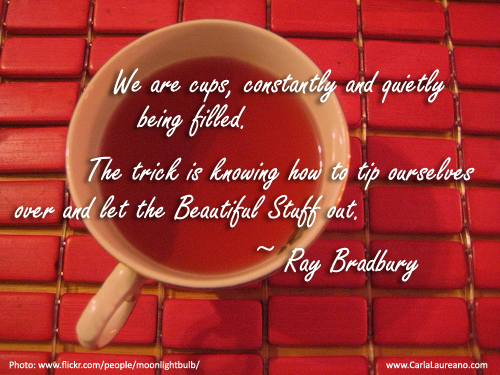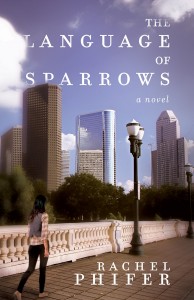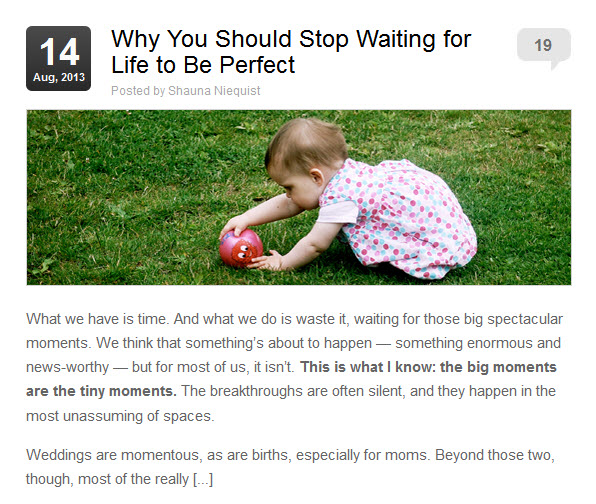Blog
Marketing Monday: When You Don’t Have Anything to Say (Author Sites, Part Seven)
 In a perfect world, ideas for blog posts would just flow without effort. (In a perfect world, any part of the writing process would flow.) Sometimes you have something specific to say. But what about those days that you just can’t think of anything interesting about which to write?
In a perfect world, ideas for blog posts would just flow without effort. (In a perfect world, any part of the writing process would flow.) Sometimes you have something specific to say. But what about those days that you just can’t think of anything interesting about which to write?
In honor of those days where blogging feels like a trek through the Fire Swamp, complete with Lightning Sand, here’s a not-quite-definitive list of blogging ideas for fiction authors. You can bet you’ll be seeing some of these first ones from me in coming days.
If you’re not promoting a book, you may have to adapt some of these for your purposes, but they work well for all genres. In fact, if you’re not promoting a book, you have even more leeway to play.
Topics Relating to Setting
Do your books all take place in the Pacific Northwest? Do you write in a specific time period? Then you have a wealth of information at your disposal for blog posts. You can take a wide view (for example, a Celtic fantasy author might write about the broad history of Ireland or Scotland) or a narrow one (a historical writer setting books in New York in the 1800’s might focus on particular details of architecture or culture.)
A few specific ideas:
- A photographic look at your book’s setting
- Interesting facts about the area
- Old photographs/newspaper clippings/research materials
- The inspirations for specific locations
- How to plan a vacation to your book’s setting
Topics Relating to Characters
Chances are, you have at least one character with an interesting backstory, job, or quirk. And you probably know enough about that backstory, job, or quirk to fill a dozen blog posts. Readers love to delve deeper into characters they already know. Make it interesting enough, and it might be the nudge needed to get them to pick up the book!
- Information on a character’s career, vocation, or hobby
- Character dossier or interview
- The story behind how your characters came to be
- Character inspirations/casting choices
Topics Relating to Theme
Much of the fiction written for the inspirational market relates to wider themes and challenges, whether those are personal, social, or spiritual. If you’ve written a book that deals with human trafficking, you can talk about everything from the shocking statistics you learned during research to the personal impact that research made on you. A word of caution: most people are looking for light, uplifting or inspirational stories when they comb blogs, so you may need to consider whether heavy or dark subject matter is appropriate for your blog. It all depends on your goals for your writing and your blog itself.
Topics Relating to Tone or Area of Interest
Even if your material doesn’t relate specifically to your book(s), you can always target topics according to the tone or area of interest of your readers. Readers of particular genres will gravitate towards certain topics. Some examples to get you started:
- Chick lit: fashion or celebrity gossip
- Romance: Romantic getaways, ideas for special occasions with your mate
- Mystery: Unsolved mysteries, most mysterious travel destinations
- Fantasy: Interesting historical facts, period weaponry or costuming
Hopefully, this list gets your wheels spinning. But if you need more ideas, check out these other helpful lists:
Tags: blog topics, blogging, fiction writing, what to blog, writers block
Fictional Friday: Writing Chose Me, by Rachel Phifer
It was never a choice. Writing is in my DNA. If I’d been born before books and laptops, I probably would have told stories to my clan around the campfire.
When I was a kid, and grownups would ask what I was going to be, I knew the answer. A novelist, of course. Why it was so obvious, I’m not sure. Possibly because as soon as I could read chapter books, I was drawn to them. The children in books had dignity and bravery that made me want to be more than I was. Countries and ages long past opened up to me. Plot twists made me speed breathlessly through the pages.
When my friends wanted to play house, I suggested playing “orphans living on their own until they’re discovered by the president” instead. I guess that was an early clue that I had a heart for stories.
Words so often eluded me when I tried to talk. I didn’t know how to describe my awe at an orange harvest moon hanging so low in the sky I could almost touch it. I had questions – so many questions about God, heaven, other faiths, but when I wondered aloud, I received blank stares. With a pencil in my hand, though, words and thoughts sorted themselves out. So I filled notebooks with journal entries, stories and sketches.
I don’t know when it happened, maybe it was in high school or college. But somewhere along the way, I realized that the odds were against getting published, and since I didn’t see myself as blessed with good fortune or genius, I put my writing goals away, out of reach pipe dreams. It was only years later, when I held my first baby girl in my arms, that I began to think about writing again. At first it was because I was desperate to spend time with my daughter. But it quickly became obvious that getting published was a long, long road and that I might never make enough money at it to be a stay at home mom.
Once I started writing again, though, I couldn’t stop. I got up at four or five in the morning and wrote in the dark. I edited and researched during lunch. Exhausted and unsure of myself, I learned how to write a novel as I went. Why did I keep at it? For a host of reasons. Because my heart was full, and writing fiction gave me a way to pour out all the beauty and pain, the questions, faith and passion in me. Because when I got into a writing zone, words became so real, I could taste them and feel their shape. I loved learning the craft of storytelling. I loved being creative. It was my way of showing my daughters it was okay to pursue their God-given dreams. And the characters walked into my head and wouldn’t let me be.
Motherhood, calls for volunteers at church and a dozen other obligations gave me second thoughts about the way I was spending my time, a crazy boatload of self-doubt, if you want to know. But when I held my first completed novel, I knew I’d done something worthwhile, and that God could touch lives with the stories I would write. Even more, I sensed that God had watched over me through the long, uncertain path of learning to write. Words were God’s gift to me, and in turn, I wanted my words to be my gift to Him.
About The Language of Sparrows
Brilliant and fluent in too many languages to count, 15-year-old Sierra Wright can’t seem to communicate what is important to her in any language. Though April Wright stubbornly keeps an upbeat attitude about her daughter’s future, she has let her own dreams slip away. Just across the bridge lives old Luca, scarred from his time in a Romanian gulag years before. Though he has seemingly given up on people, Sierra is drawn to him despite his prickly edges.
No one else is comfortable with the unpredictable old man spending time alone with Sierra, not even Luca’s son. Yet it is this unconventional relationship that will bring two families together to form friendships and unearth their family stories, stories that just might give them all the courage to soar on wings toward a new future.
[author] [author_image timthumb=’on’]https://www.carlalaureano.com/wp-content/uploads/2013/08/RachelPhifer_headshot.jpg[/author_image] [author_info]As the daughter of missionaries, Rachel Phifer grew up in Malawi, South Africa and Kenya, and managed to attend eleven schools by the time she graduated from high school. Books, empty notebooks and cool pens were her most reliable friends as she moved from one place to another. She holds a B.A. in English and psychology from Houston Baptist University, and lives in Houston with her family.[/author_info] [/author]
Tags: childhood dreams, Rachel Phifer, The Language of Sparrows
Words for Women: These Are The Good Parts
 Today’s Words for Women post was supposed to be a guest blog, but thanks to some crossed wires (story of my life these days…) I’m doing something a little different.
Today’s Words for Women post was supposed to be a guest blog, but thanks to some crossed wires (story of my life these days…) I’m doing something a little different.
I came across this post by Shauna Niequist at the Storyline blog, thanks to a friend who linked it on Facebook. It really spoke to me, so now I’m going to share it with you. It’s about not waiting for the big climactic moments of life to define you, but the small moments.
As a writer, it’s easy to focus only on the deadlines and the must-dos… not missing the field trips while screaming through line edits… remembering that today the fundraiser paperwork needs to be turned in when your mind is on how you’re going to resolve the plot twist. And while you’re torn in different directions, it’s easy to miss the wonderful moments: the sweet kiss goodbye as you drop the littlest one off at school, an act of kindness given or received, or even just a moment of amazement at a sunset. Even worse when the only thing that jolts us out of our complacency or busyness is tragedy.
…there are no throwaway moments — not when it’s easy, not when it’s hard, not when it’s boring, not when you’re waiting for something to happen. Throw those moments away at your own peril. (Shauna Niequist)
To read the rest, head on over to the Storyline blog. It’ll be worth your while, I promise!
Tags: being present, Best of the Web, busyness, Shauna Niequist, Storyline blog
Marketing Monday: Making Blogging Easier (Author Sites, Part Six)
 So you made it through last week’s post To Blog or Not to Blog and ended up on the positive side of the equation. But you may still be a little nervous about the prospect of cranking out several unique blog posts a week… for the rest of your career.
So you made it through last week’s post To Blog or Not to Blog and ended up on the positive side of the equation. But you may still be a little nervous about the prospect of cranking out several unique blog posts a week… for the rest of your career.
I probably just lost half of my readers who went back to rethink the “not to blog” part of the equation. But it doesn’t have to be painful. Here are a few ideas to help you manage the process.
1. Find your optimal number of blogging days. In general, that’s considered three days a week. (Check out this post from Michael Hyatt.) For you, it may be more or less. It’s better to do high quality posts a couple of days a week than to just throw out quick blog posts that won’t encourage engagement to make a five-day-a-week schedule.
2. Get help. Most of us know dozens of writers in various stages of publication. Ask for guest blogs. Offer to interview them and promote their upcoming releases. You get content for your site, they get extra exposure for their book. Win-win!
3. Choose topics/columns. Rather than relying on the whims of your imagination, choose a different theme for each blogging day of the week and stick with it. You’ll be able to build a readership more quickly, and it will allow you to test what topics resonate most with your reader. Don’t be afraid to switch things up.
4. Batch your blog posts. I find it difficult to keep up with blog posts when I write them one at a time, just in time to post the next day. I now attempt to write a week or two worth of posts on a single day each week, then set them up to post automatically. Experiment with what works best for you. Perhaps you’d rather write a month’s worth of Monday posts in one day. Or maybe it works better to write the following week’s posts the Friday before. Once you get your rhythm and get ahead of the game, the regular schedule of posting doesn’t feel quite so overwhelming.
5. Curate content. You don’t always have to create an idea from scratch. Pull a particularly relevant post from your blog reader, and reblog it with your thoughts: do you agree or disagree? Many of the most successful blogs send readers elsewhere, knowing they’ll come back to find content hand-selected.
Now it’s your turn. Do you already blog? What tips have you learned for making blogging easier?
Tags: blogging, content curation, marketing



